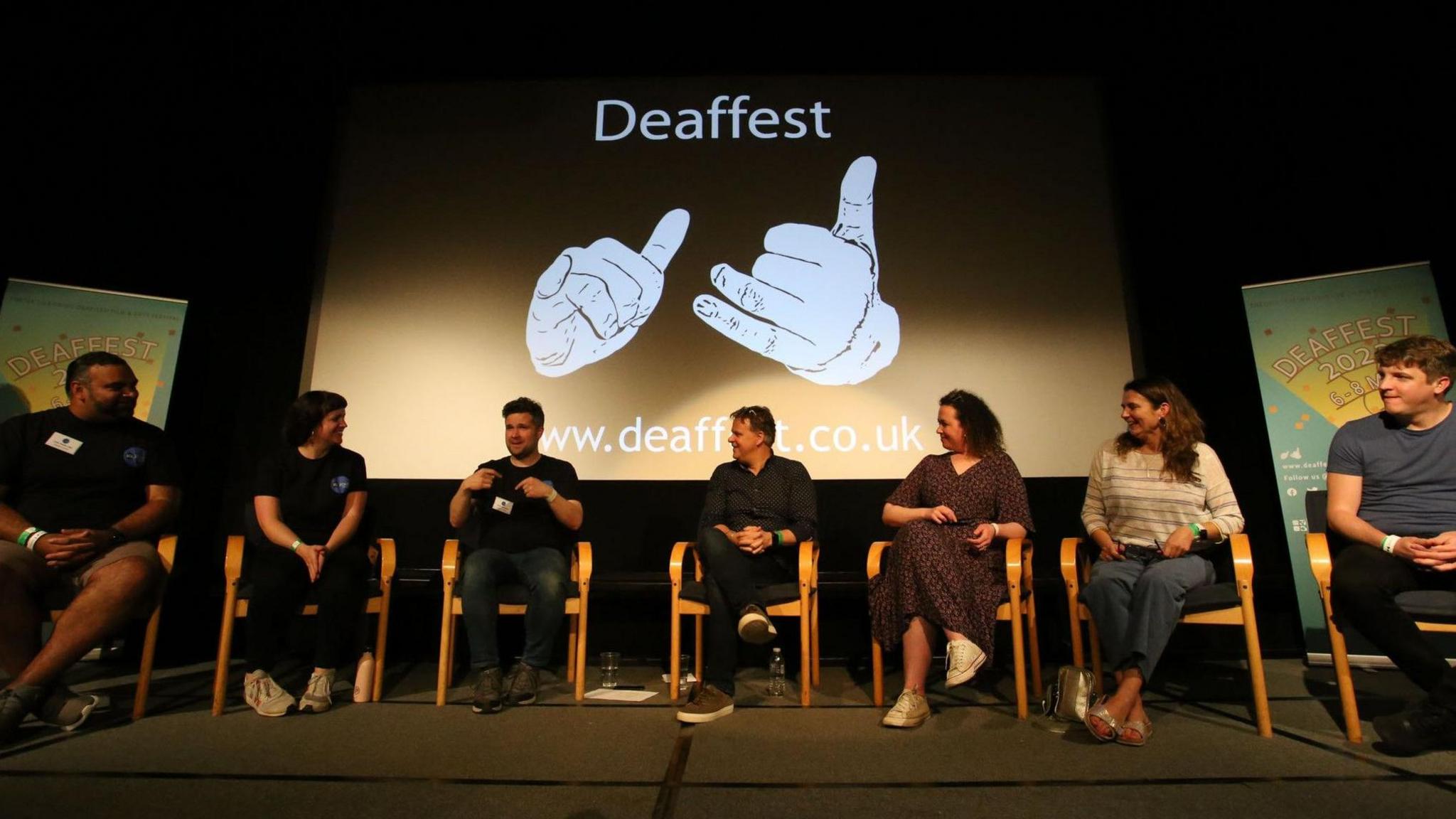Deaf people as interpreters 'shifts the world'
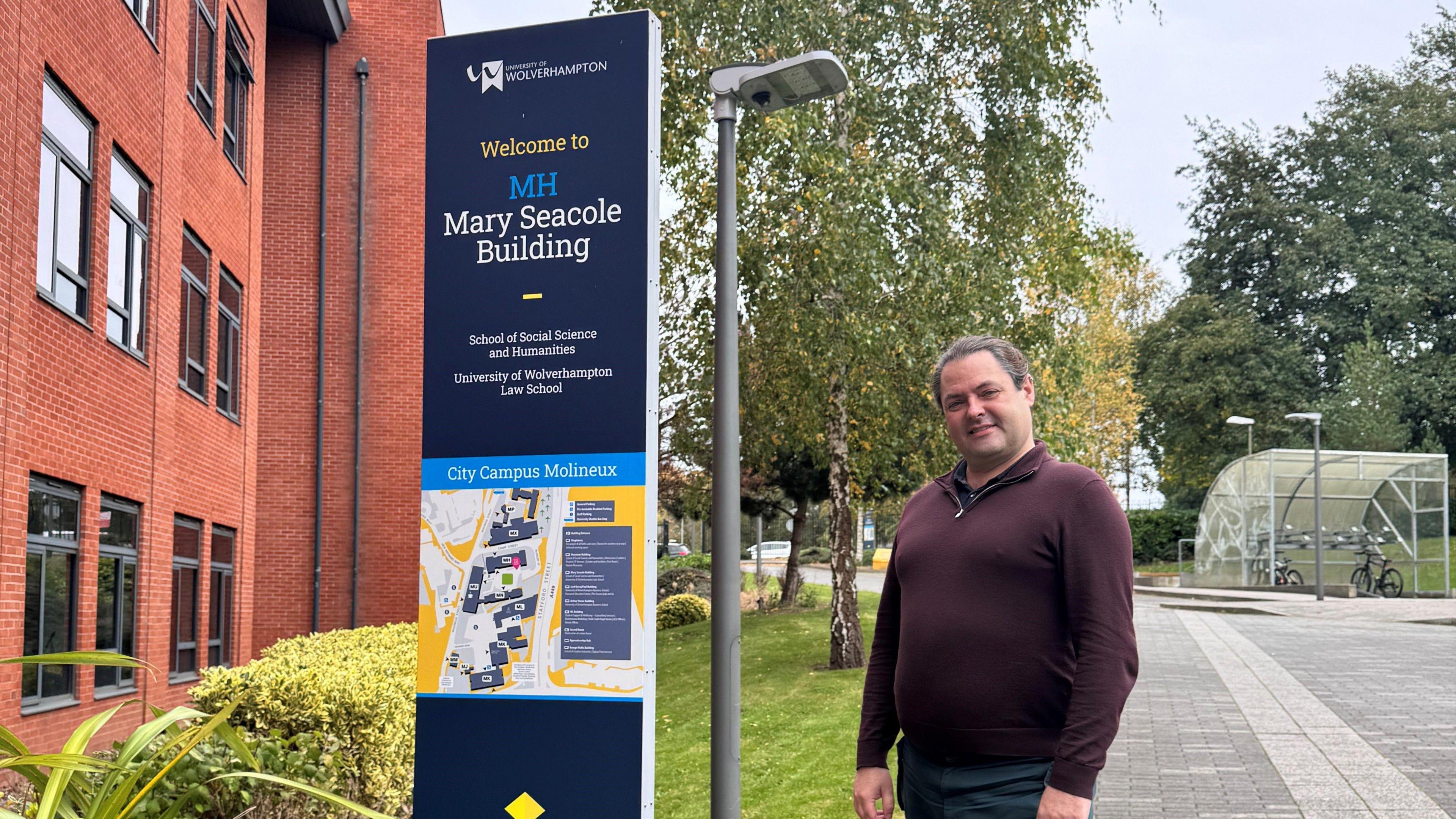
Dr Christopher Stone says he is "delighted" to have recieved funding for the project
- Published
Interpretation is a cornerstone of communication for deaf people who, without that real-time translation, may not be able to follow all that is being said.
But deaf people do not only benefit from interpreters, some wish to themselves provide the service to deaf communities, assisting in environments and scenarios where otherwise communication may prove challenging.
Now it is hoped a £600,000 research project - conducted in part by the University of Wolverhampton - will "shift the world"; allowing deaf people to receive training and boost employment opportunities in the field, and in turn, assist wider deaf communities to seek multiple professions.
"It’s quite nice to suddenly get a big lump of money," said Dr Christopher Stone from the university, who will lead the three-year project alongside professors at the University of Toulouse and the University of Berlin.
Part of the work will explore differences between the UK, France and Germany in how deaf people help others understand what is being translated.
"This research will probably influence our colleagues across Europe, and potentially more broadly, globally," said Dr Stone, himself an interpreter, and a hearing one.
He conducted similar research for his PhD about 20 years ago and said what he expected to discover from the new project was that deaf people found it easier to understand deaf interpreters, rather than those who can hear.
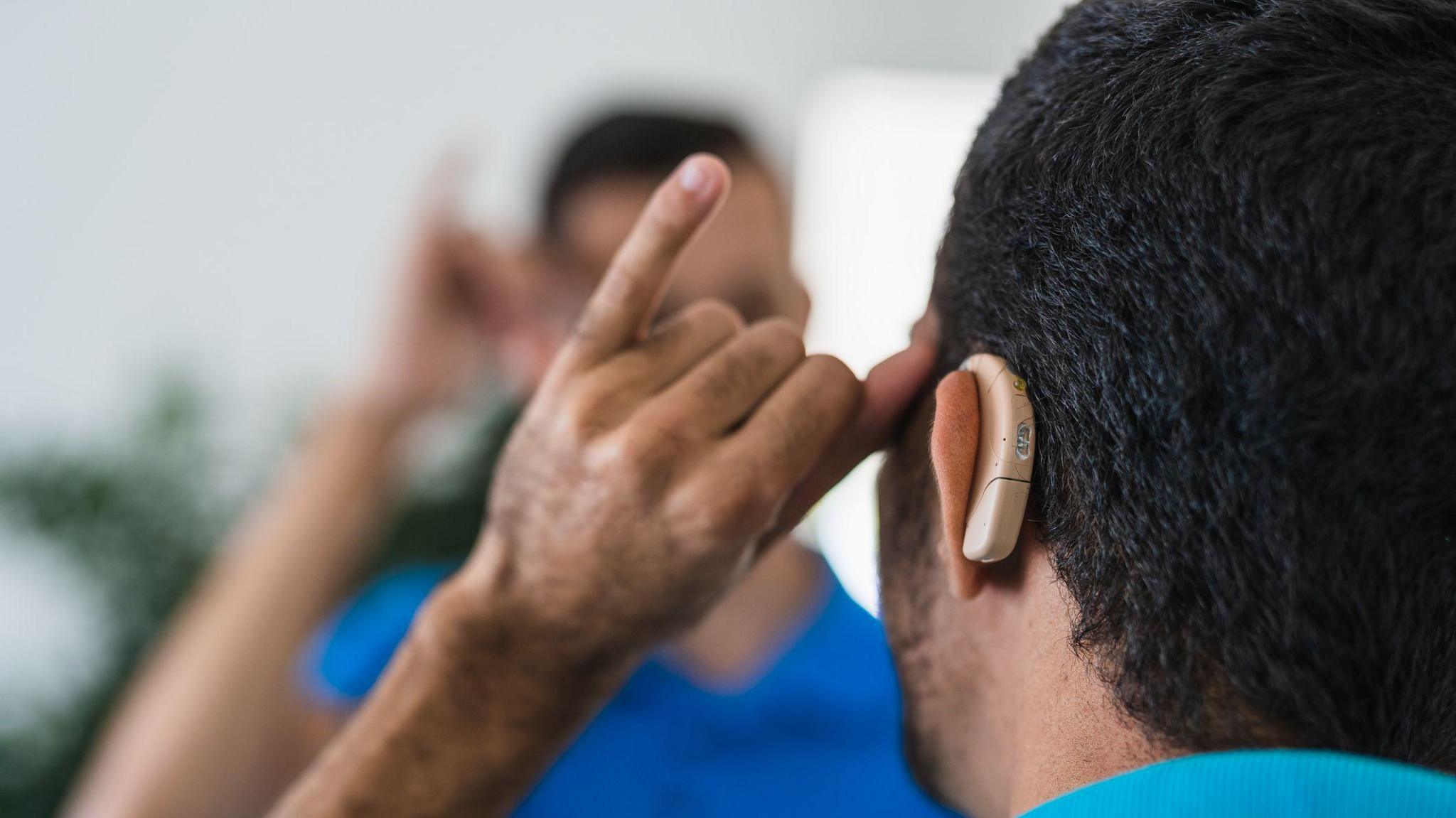
Dr Stone hopes the three-year research project will unlock opportunities for deaf communities, and potentially inform policy globally
"What we’re interested in is…how has the profession developed in the UK, and in France and Germany?" Dr Stone explained.
"What does that tell us about the ways deaf people work as interpreters that are similar and different in different places?"
Dr Stone said that in the UK, interpreting of this type was generally more developed in the field of television, while in France, it appeared there was more development in healthcare settings.
Germany's strength, he said, was interpretation in parliament and government.
"Deaf people have always been involved in providing access for their own communities," he told the BBC.
"One of the things that this [research] will do is provide extra evidence and support for that."
"It's more likely that there will be opportunities for deaf interpreters and translators to receive training, employment, and be specifically targeted to do translations and interpretations, rather than hearing professionals."
But ambitions did not end there, he said.
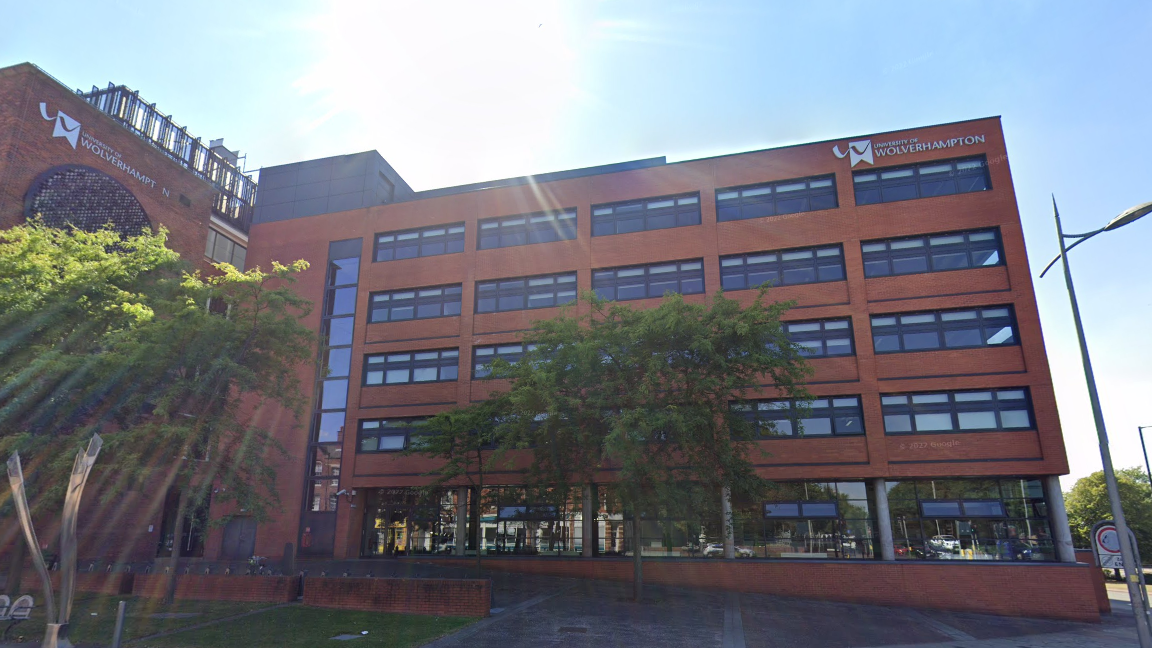
The research is being conducted in Wolverhampton in collaboration with professors at the University of Toulouse and the University of Berlin
Dr Stone explained that boosting opportunities for deaf people to interpret would continue to open doors for wider deaf communities.
"If a deaf person wants to run to be a politician, they need to know about politics," he said. "If they want to be able to work in the theatre, they need to understand the arts.
"They want to go to things that happen in the mainstream, as well as things which happen within their own communities.
"Hopefully it means we’ll be able to teach better, hopefully it means we’ll be able to influence policy at a national or maybe international level."
The project is to begin in February, when the research assistants - who are deaf and interpreters - will be recruited.
"I think it should have impact, I think there’ll be interesting findings," said Dr Stone.
"Maybe not change the world, but definitely will shift the world a little bit."
Get in touch
Tell us which stories we should cover in Wolverhampton
Follow BBC Wolverhampton & Black Country on BBC Sounds, Facebook, external, X, external and Instagram, external.
- Published31 October 2024
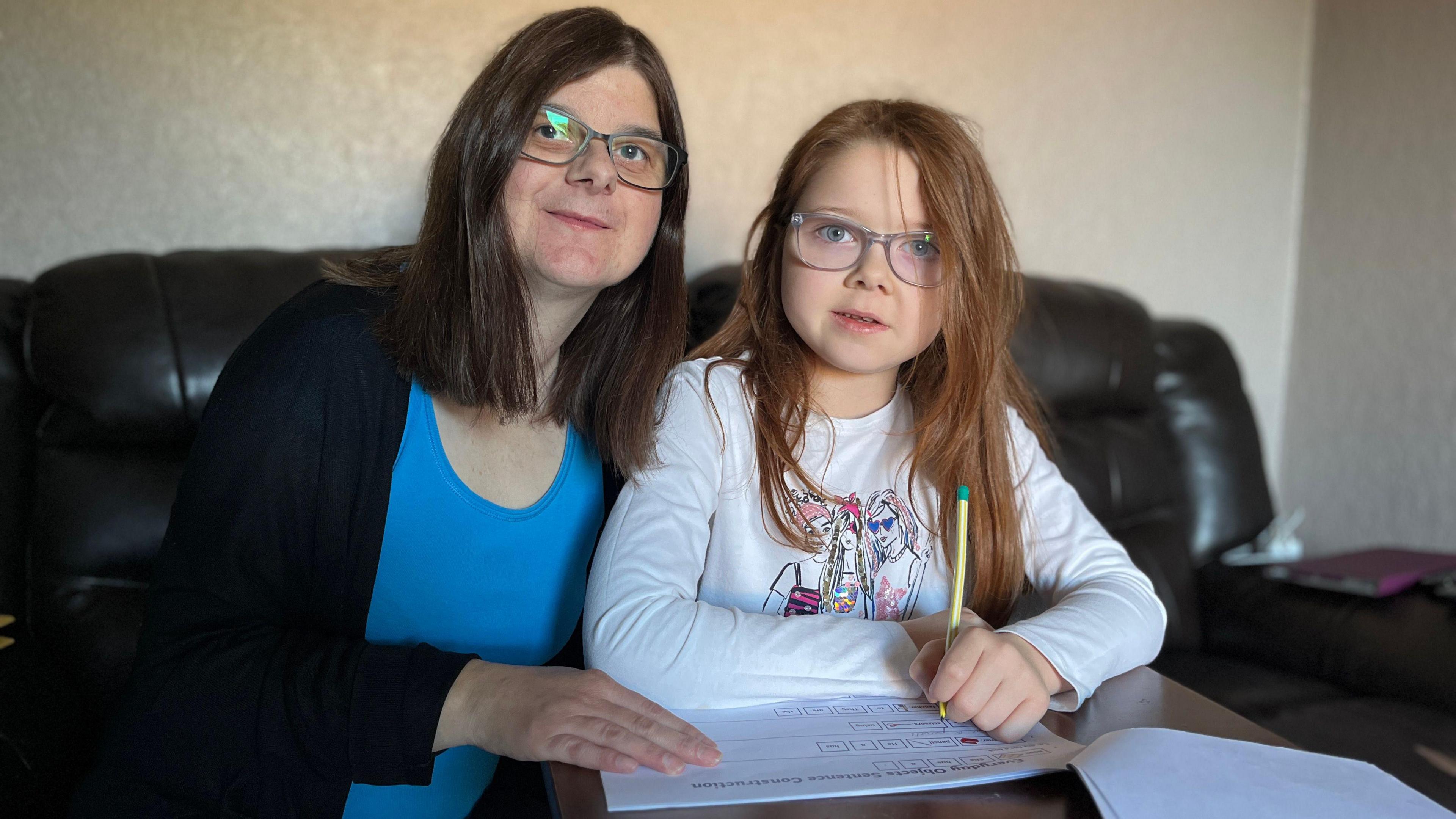
- Published31 October 2024
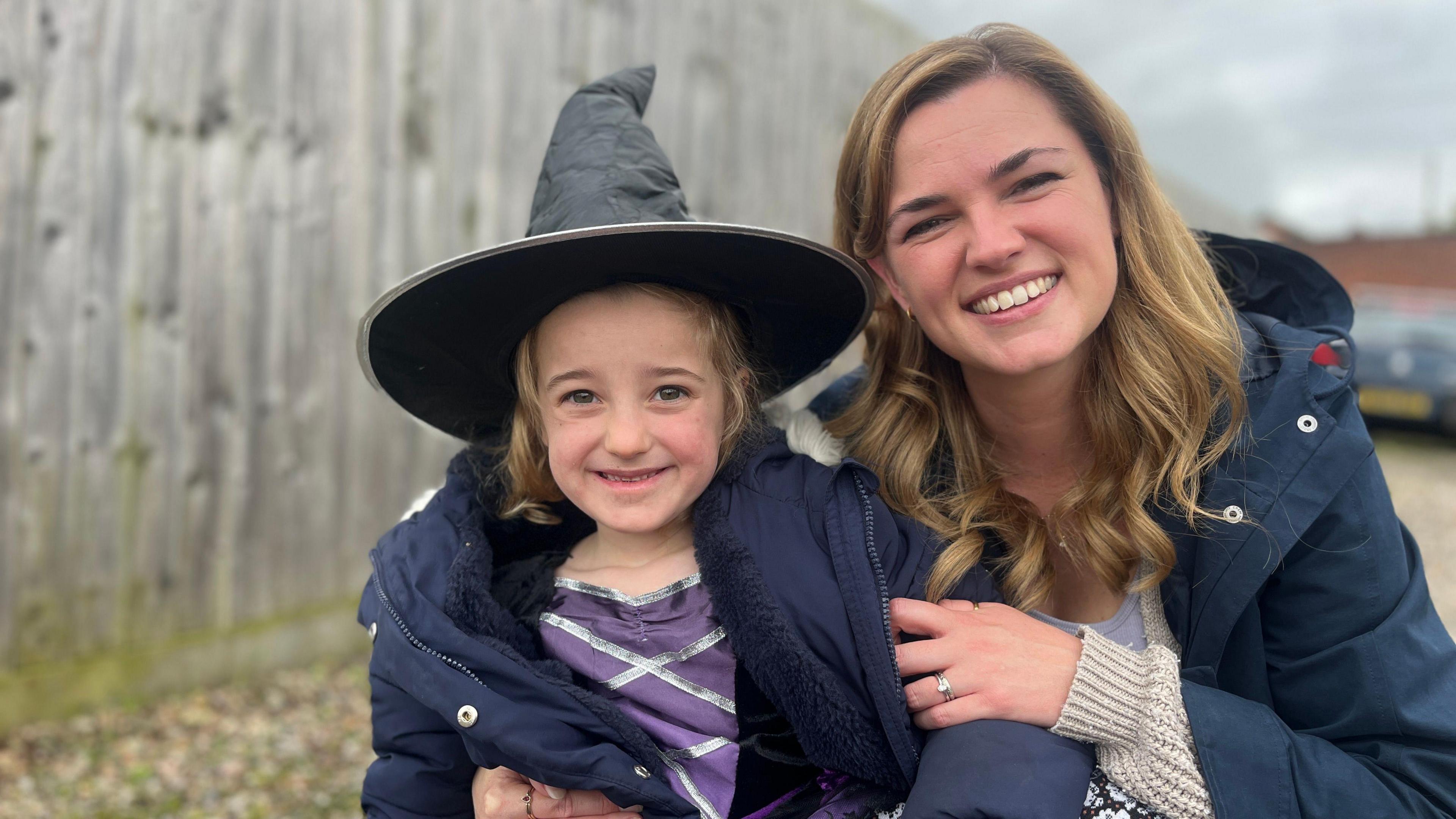
- Published10 May 2024
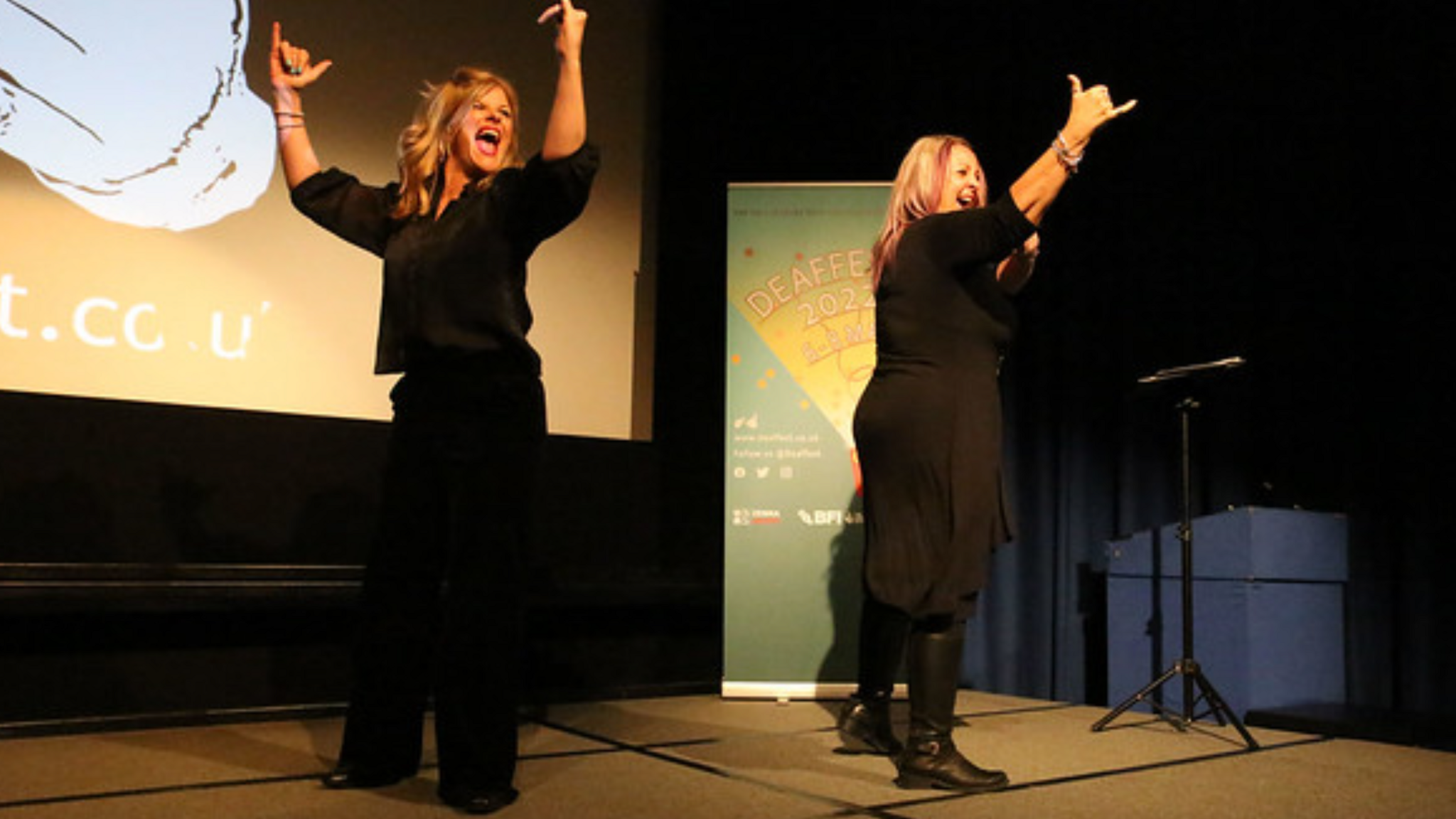
- Published15 April 2024
